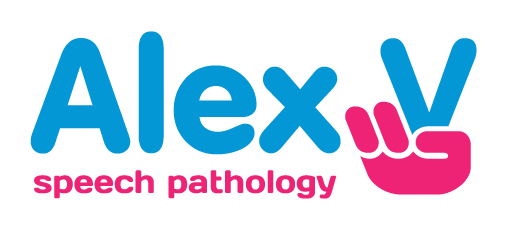Language. It’s something we use every day and often take for granted. On the other hand, people who struggle with language crave the ability to use language correctly and communicate with others effectively.
For those who do have a language disorder, language therapy is vital in helping to improve their language skills so that they can communicate confidently. At Alex V. Speech Pathology, we provide language therapy to children in a fun and engaging way, helping them to develop fundamental language skills so that they can thrive in their academic and social lives.
Below, we’re taking you through the importance of language therapy, the three levels of language and how these contribute to the spoken word.
Why is Language Therapy Important?
Being our means of communication, language is a fundamental part of our lives that should never be neglected. If you notice that your child is struggling to either follow and understand instructions, sounds extremely childish compared to their peers (within reason) or cannot express themselves verbally, it’s important to book them in for a language test. When your child begins to develop stronger language skills, you will see an immense improvement in their confidence, social skills, academic results and their relationships.

The 3 Types of Language
Syntax, semantics and pragmatics are used to categorise the descriptions of language characteristics. If you know the characteristic of a language, you are therefore fluent in that language. Syntax, semantics and pragmatics are all needed to convey a complete message in the English language.
What is Syntax?
Syntax, in basic terms, is synonymous with grammar and refers to the ability to use grammar correctly in English. This can include things such as knowing plurals, different tenses (past, present, future), being able to construct sentences in a grammatical way (such as using conjunctions and words like ‘so’, ‘for’, and ‘because’ to create a sentence).
In English, sentence syntax should follow a subject-verb-object agreement. For example:
- Amy prepared the food
- Amy ate the food
Children who have issues with Syntax have trouble being understood by others and expressing themselves because they can’t find the correct words to do so.
What are Semantics?
Semantics essentially refers to a person’s vocabulary and is the study of the meaning of a sentence. A person who struggles with their semantic language will have trouble finding words to use in their conversations. For example, associating similar words with each other like cat and dog or table and chair.
This is because in the brain, our syntax is stored in files like a web where the words are connected to each other. Some children have a disorder where it takes them a little bit longer to find the words because they’re all in a jumble or they simply don’t have a good vocabulary bank.
On the other hand, children who struggle with semantics may understand syntax and able to use words in a sentence, but not one that makes logical sense. Here’s an example:
“A cow chased a lizard across the road”
This sentence makes sense from a syntax perspective, but from a semantics perspective, this doesn’t seem logical as a cow wouldn’t chase a lizard.
What are Pragmatics?
Finally, pragmatics refers to how you use your language. This is in terms of conversational skills; for example, staying on topic in a conversation, how to take turns in a conversation, maintaining eye contact and more.
Pragmatics also has to do with the context-dependant features of language, such as the different meanings that sentences can have. Using the cow and lizard example again, the sentence might seem odd, but taking pragmatics into consideration would be looking at why that specific cow might be chasing the lizard.
Alex V. Speech Pathology are paediatric speech pathologists, treating children with a range of different speech, language and social disorders. If you think your child might need language therapy, contact our friendly team to book in for a consultation on (07) 3217 7037.

